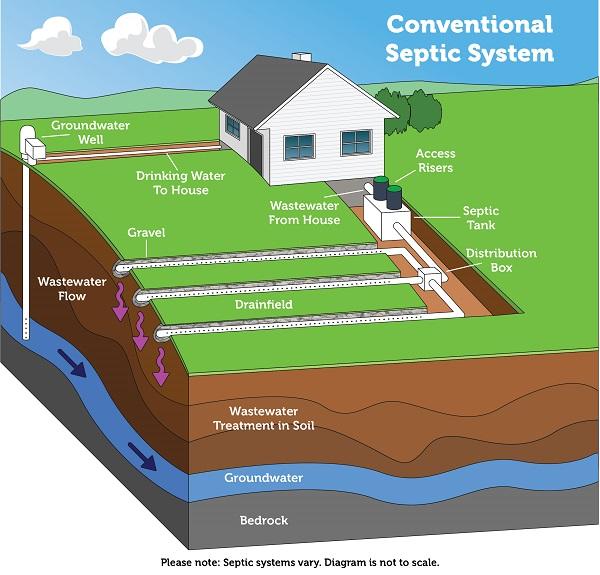Florida, like the rest of the U.S., has a water infrastructure problem.
“We have an aging infrastructure, much of which is beyond its lifespan, but utilities have not included upgrading in the price of water. There’s a ticking time bomb of water infrastructure in this country, but there’s no funding for it,” said Damian Adams, University of Florida associate professor of natural resource economics and policy.
Proposed legislation, however, looks to address some of the water infrastructure issues affecting Florida.
Nearly one-third of the state’s population uses septic tanks, representing 12% of the total number of septic tanks in the U.S. Unlike central sewers, property owners with septic systems are personally responsible for monitoring and maintaining them.
Those systems will have a lifespan ranging from 15-25 years, but many are still used well past the recommended guidelines. This can lead to wastewater leaking into our waterways.

Florida has a relatively high water table, usually sitting just a few feet below septic tanks. The longer it takes water to filter through the ground, the more contaminants are removed. Our fast-draining landscape can lead to fewer contaminants being removed.
Flooding and sea level rise can raise the water level even more, exacerbating those problems says Samuel Smidt, an assistant professor of watershed science at UF.
Untreated waste making its way into the flow of water can contribute to the nutrient pollution that fuels the algal blooms that have plagued Florida’s waters.
SB 712 looks to address some of these risks, taking some recommendations from the state’s Blue-Green Algae Task Force into account.
The bill introduces several changes:
- Transfers oversight of septic systems from the Department of Health to the Department of Environmental Protection
- Creates a grant program to upgrade septic systems or connect them to sewers and takes steps to minimize leaking from wastewater pipes
- Directs agencies to take nutrient reduction into account in stormwater management programs
- Monitors fertilizer and nutrients on agricultural sites enrolled in the Department of Agriculture and Consumer Services’ best management practices
Noticeably missing from the bill, and a source of criticism, is the Task Force’s recommendation to increase inspections of septic systems, an idea unpopular among property owners not connected to central sewer systems.
Critics say the bill doesn’t go far enough, lamenting the voluntary nature of the best practices program for minimizing agricultural nutrient pollution.
SB 150 takes aim at leaky sewer laterals, which are the pipes that connect domestic wastewater to central sewers. Unlike central sewers, sewer laterals are on private property and are therefore the property owner’s responsibility to maintain.
This bill encourages county and municipal governments to create programs for inspecting and offering affordable repair options for homeowners. The bill would also require the disclosure of any damaged sewer laterals to prospective property buyers.
UPDATE: SB 712 passed and is heading to Gov. DeSantis’ desk for his signature. SB 150 died in Rules.